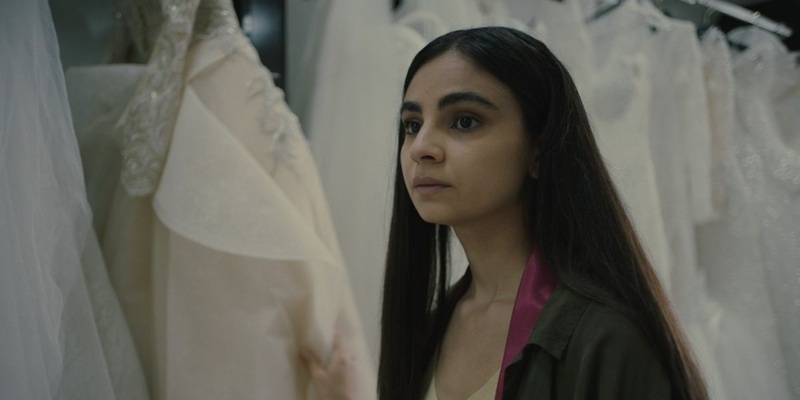
A young bride-to-be considers hymen reconstruction so as not to be
shunned by her conservative Kurdish community.
Review by
Eric Hillis
Directed by: Milena Aboyan
Starring: Bayan Layla, Derya Durmaz, Nazmi Kirik, Armin Wahedi, Derya Dilber, Cansu Dogan,
Beritan Balci

I think it was Tammy Wynette who famously sang "Sometimes it's hard to be a
woman, keeping your hymen intact for just one man." Okay, maybe not, but had
Wynette been born into certain communities that may well have been how the
song goes. In Germany's tightly knit Kurdish community - the setting of
writer/director Milena Aboyan's feature debut Elaha - a
woman is expected to have a fully intact hymen on her wedding night. Never
mind that some women are born without one, or that it can be eroded by
activities that have nothing to do with sex. Them's the rules.

"I love my culture's traditions, I just don't agree with some of its
rules." That's how the titular teen (Bayan Layla) sums up her
relationship with her community. It's a sentiment that will no doubt
resonate with many young Europeans from immigrant backgrounds, the conflict
between pride in their traditional background and a desire to integrate with
the liberal culture they grew up in. At one point Elaha expresses a desire
for a "German vagina," which wouldn't come under the same sort of scrutiny,
and she has a secret non-Kurdish boyfriend, Yusuf (Slavko Papadic),
who treats her as an equal rather than a possession. But it's been decided
that she should wed Nasim (Armin Wahedi). Elaha is naturally troubled
with the idea of entering a marriage founded on traditional expectations
rather than love, but she has a more immediate concern regarding the
repercussions when Nasim discovers she isn't the virgin he believes.
With the wedding just nine weeks away, Elaha searches for a solution. She
comes across various clinics that will perform reconstructive vaginal
surgery, but the cost of such a procedure is far beyond her budget, and she
would need a second party to vouch for a loan. Another option explored is
that of over-the-counter fake hymens, which expel fake blood upon
penetration, but a test run with a very confused Yusuf proves such a device
useless. Confiding in liberal Germans from outside her community results in
naive pleas to run away from her family, something Elaha isn't remotely
willing to do.

Aboyan's film isn't simply a one-note condemnation of a culture considered
backwards by liberal Western European standards. Elaha is surrounded by good
people who just happen to hold unfortunate views set in stone by men
hundreds of years ago. Her mother claims she would rather her daughter be
dead than be without her "purity," but we later see that she really doesn't
believe her own words. It would have been easy for Aboyan to take the lazy
route of making Nasim a villainous figure, but he comes across as a
perfectly decent bloke. The only time he acts like an asshole is when he
discovers Elaha out celebrating a friend's birthday, at which point he turns
into an entitled, misogynistic oaf. But even then he quickly realises how
badly he's acted and breaks down in tears seeking forgiveness. It's clear
that many of the people here are in constant conflict with the more
regrettable aspects of their culture, but nobody dare question it.

The young Layla is quite a find. It's a difficult role as she's essentially
playing a young woman who is herself putting on an act with almost everyone
she interacts with and she's asked to simultaneously embody desperation and defiance. When actresses are said to have delivered "brave"
performances it usually means they had to go without make-up or appear nude.
Layla is frequently required to shed her clothes here, but her performance
is the definition of brave in that she risks real life ostracisation from
her community for taking on such a role. Far from exploitative, the nudity
is very much part of the storytelling here as Elaha grows less ashamed of
her body. The film closes with a defiant shedding of her clothes as Elaha
stands proud, comfortable in the body that has caused her so much trouble.
As the camera invites us to ponder Layla's undeniably impressive figure,
we're left to ponder why the female form has fuelled so many bad ideas in
men, and why it continues to be governed by so many terrible rules.


